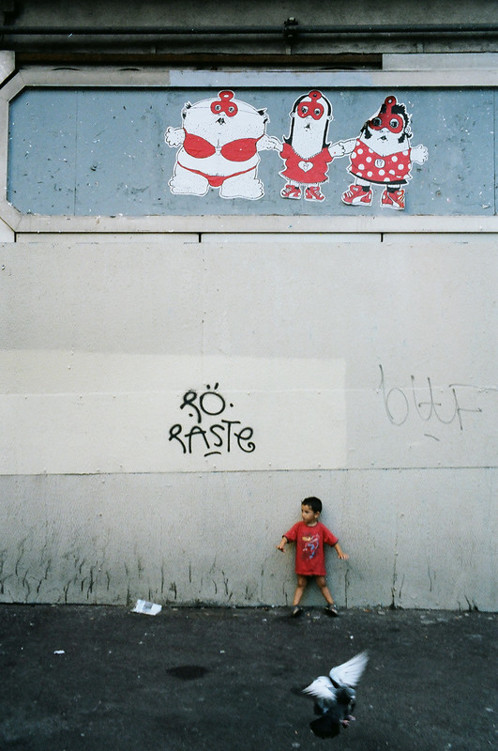“Street photography is 80 percent balls and 20 percent skill.”Eric Kim
Appendix: Privacy laws around the world

Know your rights. When traveling, you need to know what rules apply before you start shooting. Here is a summary of laws in a selection of countries.
Stay updated!
Privacy laws may change quickly, and the burden of checking what laws apply at a location rests on you. If in doubt, check current advice on street photography websites or refer to a photographer’s association in the country you plan to visit.
United States
It is legal to take photographs of strangers in public without their permission as long as they are on public property. This includes the police and government workers.
No one can force you to delete your images if you are on public property. You can even take photos of private property as long as you are on public property. You cannot take photos of people without their permission when you are on private property.
United Kingdom
In the UK, street photography is generally allowed as long as you are shooting in a public space. However, it can get a bit tricky. If police have “reasonable suspicion” that you are a terrorist trying to take photos for malicious intent, they can arrest you. They are particularly sensitive about taking photographs of children. However, this is a gray area that is not yet explained well in British law.
Canada
In Canada it is not illegal or against copyright to take photos of people, buildings, public art, and sculptures in public. However, you cannot take photos on private property or photos of people who have a “reasonable expectation of privacy” (i.e., people in a bathroom).
Australia
In Australia you can shoot virtually anything you want in public, unless there is a sign specifically indicating that photography is not allowed. However, you cannot take photographs of people who have a “reasonable expectation of privacy.” Although you can take a photo of a person without their permission, you cannot use it for advertising (which would require a model release).
France
In France you need to secure permission from your subjects prior to photographing them in a private setting, with the exception of famous people. Taking photographs in public spaces is allowed, but French law prohibits publication of photographs without the subjects’ consent—effectively rendering street photography illegal in the country that gave us Henri Cartier-Bresson and so many other well-known street photo pioneers.
Germany
In Germany you cannot publish photographs of strangers without their consent unless they are unidentifiable. However, you can publish pictures of famous people (i.e., pop stars, famous actors, politicians).
Sweden
As a general rule, taking photographs of people in public spaces is allowed in Sweden. If signs to the contrary are posted, however, an establishment may ban you from entering their premises—although photography in itself remains lawful. Private use of images is allowed, but if the images are meant for non-editorial commercial distribution, permission is needed for publication. Also, you are not allowed to take photos of people who have an expectation of privacy (i.e., people in a bathroom).
Korea
You have the right to shoot and publish street photographs in Korea, unless the image you publish will severely damage the subject’s reputation (which is very unlikely to happen). Also, you cannot publish a person’s photograph for commercial purposes.
Japan
There are no laws that prohibit street photography in Japan.
China
There are no laws that prohibit street photography in China.
